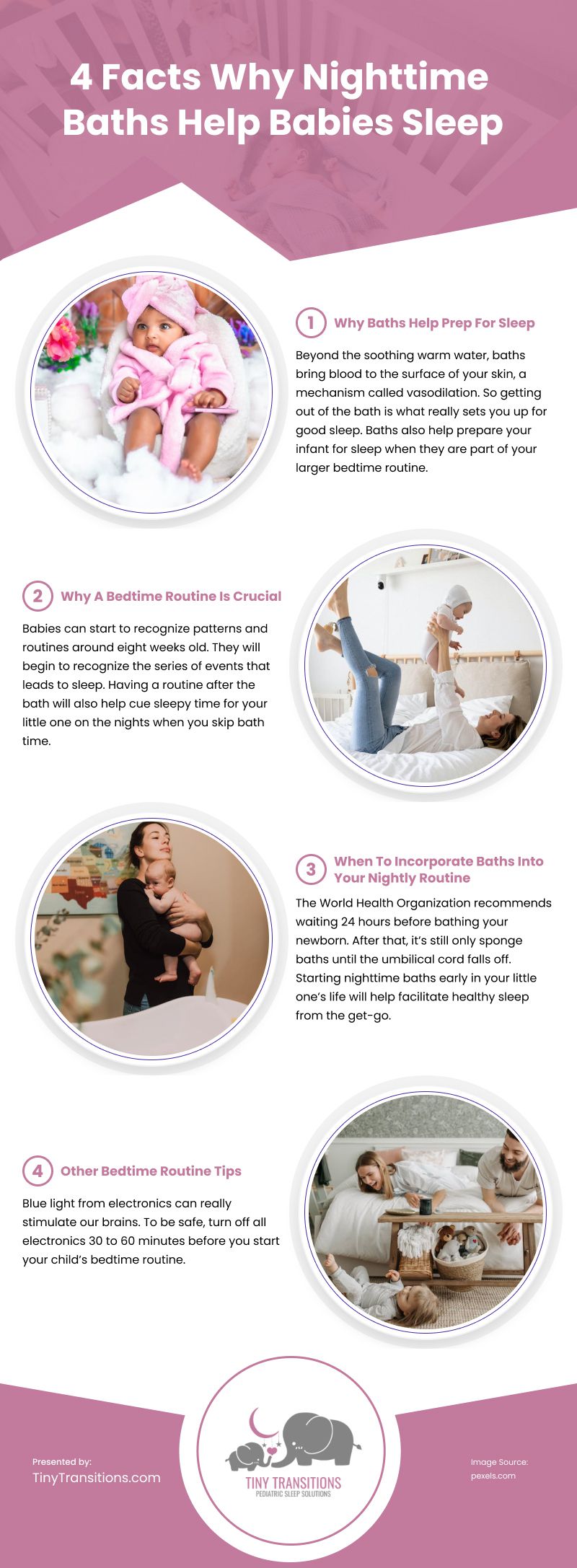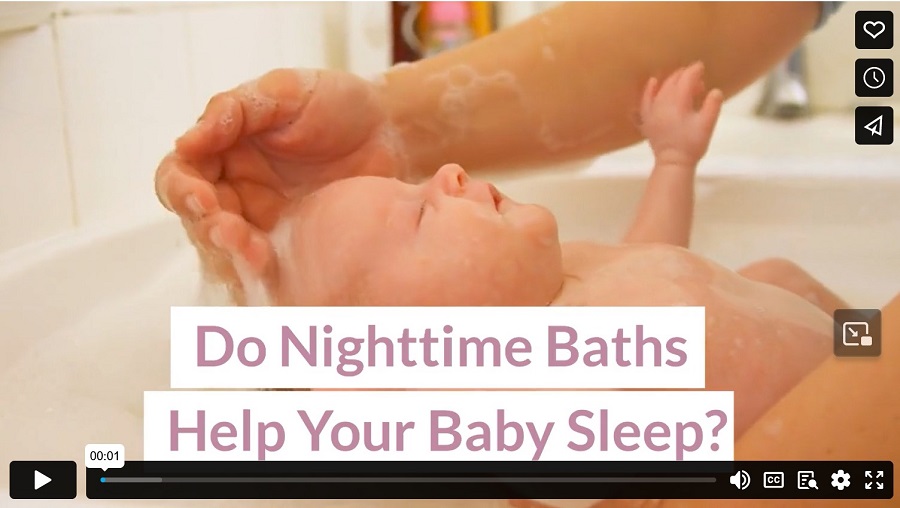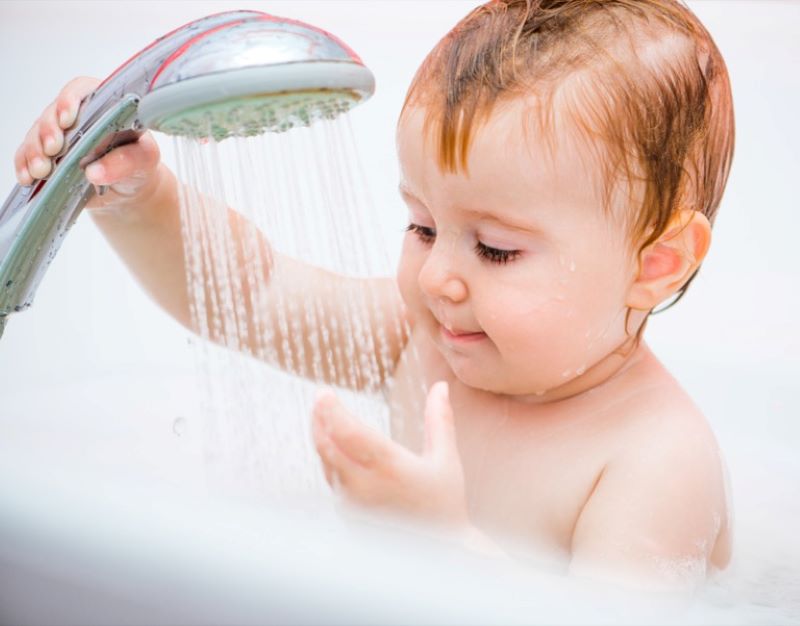Have you ever felt sick or just had a really long day and wanted to wash the day off with a hot shower or cozy bubble bath? Have you ever had a cathartic cry in the shower and felt so much better? Even from a young age, there’s something magical about water. It can turn a bad mood around, calm fights between siblings, help an overstimulated or overtired baby fall asleep, and give you some much-needed peace.
Here’s what you need to know about bathtime:
Why Baths Help Prep For Sleep
Beyond the soothing warm water, baths bring blood to the surface of your skin, a mechanism called vasodilation. So getting out of the bath is what really sets you up for good sleep: your blood vessels are still open, and your core body temperature drops slightly after being in toasty water. Because of this, you will get drowsy and want to doze off. For babies, bath water should be around 90 to 100°F and feel warm, not hot, on your wrist.
Your little one may protest the temperature change when taken out of the bath. Be sure to have a warm fluffy towel on hand to dry them quickly and get their pajamas on as soon as possible. Some babies prefer a quick baby massage with lotion before getting dressed, and some absolutely hate it. See what your little one likes, as you can always put it on before getting them dressed in the morning. Baths also help prepare your infant for sleep when they are part of your larger bedtime routine.
Why A Bedtime Routine Is Crucial
Babies can start to recognize patterns and routines around eight weeks old. They will begin to recognize the series of events that leads to sleep. It doesn’t have to be complicated, but it needs consistency. For example, bathe and dress them, give them their last feed, swaddle them, and read them a book or sing a song before setting them down for bed. It doesn’t have to be the same pajamas or book every night, but it should always be in the same order.
Having a routine after the bath will also help cue sleepy time for your little one on the nights when you skip bath time. Except for newborns, most babies sleep best when they fall asleep between 7 and 8 PM. You don’t want to be starting your nightly routine at 8 PM. Pick the time that works best for sleep and work backward so you start early enough to accommodate each step of your nightly routine.
When To Incorporate Baths Into Your Nightly Routine
The World Health Organization recommends waiting 24 hours before bathing your newborn. After that, it’s still only sponge baths until the umbilical cord falls off. Most newborns don’t love bath time anyways. However, they often like warm water running over their head when they’re getting a little sleepy or fussy. Ultimately, it’s up to you when to start incorporating baths into your nightly routine, but give it a try if your baby won’t sleep. Starting nighttime baths early in your little one’s life will help facilitate healthy sleep from the get-go.
Other Bedtime Routine Tips
You’d hate to go to the trouble to soothe your child with a bedtime bath only to have your efforts derailed. Light can be one of those derailers. Blue light from electronics can really stimulate our brains. So can musical mobiles or baby gyms that light up. To be safe, turn off all electronics 30 to 60 minutes before you start your child’s bedtime routine.
Additionally, be aware of natural light. If you live somewhere very sunny year-round, or if you’re in the middle of summer, it’s unlikely to be dark when your little one needs to sleep. The bright light outside can mess with their circadian rhythms.
Your brain produces melatonin when it starts to get dark to help prepare your body for sleep. Melatonin levels will stay high until you detect the sun is rising. When your little one should be preparing for sleep, dim the indoor lights in their bedroom and shut the curtains (preferably blackout curtains). This visual cue will help trigger melatonin production to keep them on an appropriate sleep schedule. Keeping their room dark until it’s time for them to wake up will also help prevent early morning wakings due to the sunrise.
Even as your kids get older, a bedtime routine and nightly bath or shower will help your child sleep. It’s also a calm moment to spend some quality time with your little ones. If you find your kid won’t sleep or is suddenly resisting their nap times, try a bath. At the very least, it will provide a reset for everyone to feel better and start again refreshed.
Infographic
Have you ever wished to take a hot shower or a relaxing bubble bath after being unwell or having a particularly hard day? Water has a mystical quality that is apparent even at a young age. It may improve your mood, stop sibling arguments, put a weary or overstimulated infant to sleep, and provide you with some much-needed tranquility. What you should know about bath time is as follows.

Video



